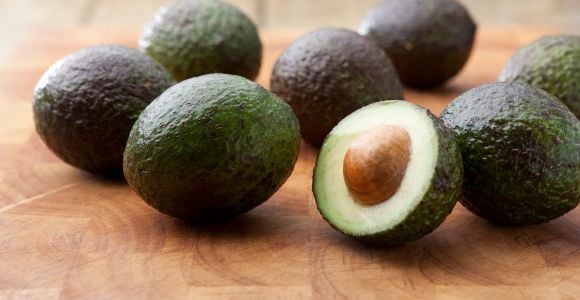Fat is an essential nutrient our bodies need. Essential nutrients are required for the body to function and they can not be synthesized (produced) by the body at all, or cannot be synthesized in amounts adequate for good health and must be obtained from dietary sources.
In the body, fat provides energy, lubrication for vital organs, insulates the body against shock and helps to regulate body temperature. Fats also provide a concentrated source of energy. Fats can be used as an immediate source of energy and other fats are stored for future use.
Fat provide the body 9 calories per gram as opposed to the 4 calories per gram protein and carbohydrates provide. This means we need fat but we don't need too much fat. An overabundance of fat and the "wrong" kind of fat are what lead to heart disease, obesity, heart attacks and strokes. There are different kinds of fats that we must be aware of to help us make good choices.
- Saturated fats are the main cause of high blood cholesterol and increase the risk of heart disease. Saturated fats are found mostly in animal products. There are a few plant foods such as palm oil, palm kernel oil, and coconut oil that contain saturated fats but not cholesterol. Saturated fats occur naturally in many foods.
- Polyunsaturated and Monounsaturated fats are found mainly in fish, nuts and seeds. These fats help to reduce blood cholesterol levels when used in place of saturated fats. Polyunsaturated fats are liquid at room temperature and when chilled. Monounsaturated fats are also liquid at room temperature, however; they start to turn solid when chilled.
- Trans-fats (hydrogenated fats) are found in baked goods, margarine, shortening, and cooking oils. Trans-fatty acids are formed during the process of hydrogenation - which means to add hydrogen. Foods with trans-fats increase blood cholesterol and risks of heart disease. Another name for trans-fats is "partially hydrogenated oils". Look for them on the ingredient list of food packages.
Polyunsaturated
- Safflower oil
- Sunflower seeds
- Soybeans
- Soybean oil
- Tofu
- Margarine
- Salad dressings
- Pecans
- Walnuts
- Fish
- Corn oil
- Olives
- Olive oil
- Canola oil
- Sesame oil
- Canola seeds
- Avocados
- Peanut oil
- Peanuts
- Peanut butter
- Cashews
- Salad dressings
- Palm oil
- Butter
- Cheese
- Low-fat cheese
- Chocolate
- Lard
- Beef & beef fat
- Cream
- Hydrogenated fats
- Vegetable shortening
- 2Tbsp Hummus with carrot sticks or (1) serving of wheat thins
- Small apple and low fat cheese stick
- ½ bagel (preferable whole grain) with 1 Tbsp peanut butter
- 1 cup (low-fat) yogurt mixed with 1/3 cup granola and/or mixed fruit
Angela Hattaway is a Nutritionist and Personal Trainer with over 15 years experience. She got her BS in Nutrition and Dietetics from Stephen F. Austin State University and she also has a Master's Degree in Business with an emphasis on Healthcare. Angela is experienced in working with both children and adults and loves working with clients to help them set realistic goals and expectations. She is passionate about nutrition and fitness and feels this comes through when she works with people. Angela loves giving clients the tools, motivation and encouragement they need to be successful throughout their lives. Visit her blog at blog.ultimatenutritionnfitness.com.She can be reached via email at at [email protected].



